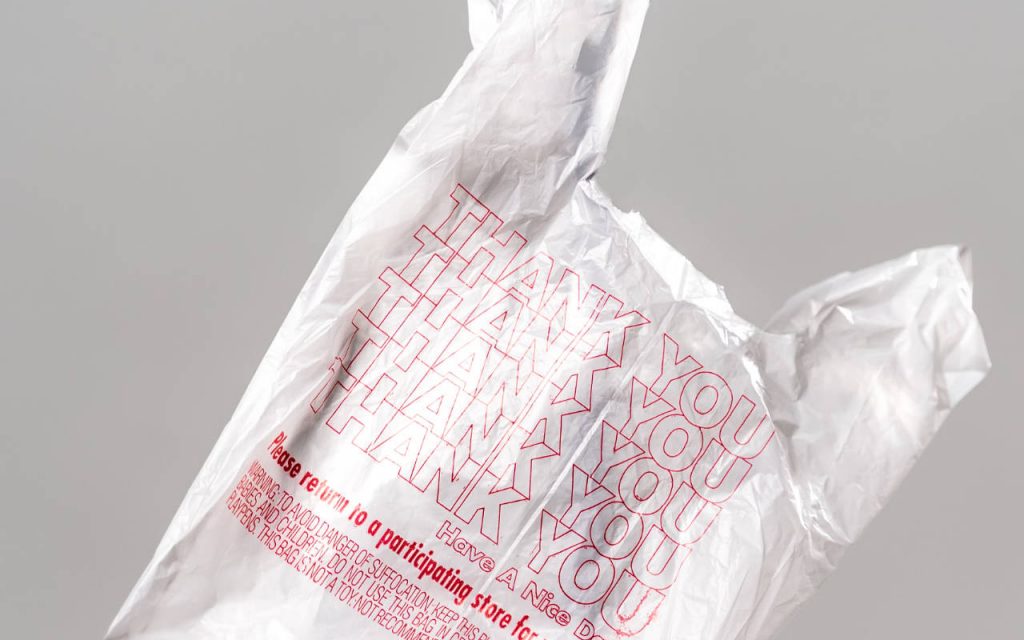It’s so easy to blame all the planet’s problems on one, easy target. And plastic pollution has been the bogeyman of the past decade.
Plastic has only recently been overtaken in the press by the seemingly untamable monster that is climate change. And the catalogue of issues that lead to climate change make for a very different story.
Here’s the unpopular bit: lightweight plastic packaging products (like polythene bags) can do far more to positively impact climate change than their alternatives can do for pollution.
And we stand by it. When we recycle it correctly, dispose of it responsibly, or use it in permanent structures – polythene is better for the environment than any other type of packaging.
Critics of plastic packaging who tout paper, card, cotton and glass as plastic alternatives fail to mention the utterly catastrophic environmental impact of producing all of those materials, not least the increased carbon footprint and contribution to climate change.
Here’s why – even though it’s unpopular to say – polythene bags are on the whole better for the planet when we dispose of them and reuse them properly.

What are the advantages of polythene bags?
What are the advantages of polythene bags, compared to the most widely used alternative?
-
Cost
This isn’t an ecological factor, but it’s still important. A standard polythene bag from a shop costs a penny or less to make. A paper bag can cost five times as much, maybe even more. Bear this in mind, because the cost of living is directly linked to increasing business costs, and that affects us all.
-
Weight and size
A single paper bag is estimated to weigh as much as 50-60 grams. A polythene bag can weigh as little as 8 grams, with superior strength and durability. Paper bags are far thicker than the mere microns-thick walls of a poly bag. Now, think about this at scale; you can move fewer paper bags, at an additional weight – therefore using more fuel per delivery – or ship vast quantities of polythene packaging in the same delivery space. Polythene is so much lighter and stronger than paper. It’s no contest.
-
Reusability
A paper bag can be used a handful of times before it wears down, becomes wet, or tears. A polythene bag can potentially be used hundreds of times before notching or tearing – and are perfectly happy to get wet. A longer life of reusability is always better for the environment – and polythene wins against paper because it’s stronger. Paper is also not as recyclable as polythene; if it gets oily or dirty, it can’t be recycled, and is landfilled. Polythene can be processed, cleaned, and recycled more readily at participating plants.
-
Versatility
Polythene bags can be used in packaging operations to protect a vast number of components, foods, and products in transit.
Read more – Every Use For Polythene
While paper can be used as a void filling material, it doesn’t offer the same strength, moisture proofing or weight advantages of polythene. With less material, superior packaging results can be achieved – lowering cost and carbon footprint.
-
Environmental damage
Polythene bags do pose a problem when they are discarded improperly. Unlike paper, polythene doesn’t rot away in a short period. Instead, it slowly decays into microplastics; and we’re still learning about the health and environmental impact of these. Paper isn’t any better, though. Yes, it breaks down more easily – but into what, exactly? If it’s coloured or printed, the inks can leach into water and soil, and these can be harmful. And worse still, paper breaks down into the most harmful of greenhouse gases, methane.
Paper also takes around three times more energy to produce than plastic does, adding yet more to the carbon footprint of paper. And as for water use? The paper industry is the biggest industrial user of water in the world. A single sheet of paper takes 5 litres of fresh water to make – and the pollution it spills into waterways is deadly.
The verdict? Polythene reduces wastage and fuel use
By being lighter, stronger, cleaner to make, and more versatile than any alternative packaging solution, polythene bags are unequivocally better for the environment.
That’s why big brands – like Innocent, ASOS, and more – are sticking with it for their packaging. The science shows that switching over to paper or glass would be worse for the planet.
But we can’t ignore the problem of pollution. There’s a huge amount of plastic in the ocean, and it’s a major threat to our health and the environment. What we need, then, is better waste management and higher rates of recycling. Could the Plastic Packaging Tax (PPT) be the solution? Well…
Impact of the Plastic Packaging Tax
The Plastic Packaging Tax (PPT), in effect since April 2022, could help to curb the unnecessary use of virgin material – but PPT will inevitably make the price of your weekly shop go up.
Read more about the Plastic Packaging Tax here.
The fact remains that some plastics must be from virgin material sources: specifically food and medical packaging – so it’s unavoidable for most of us.
Time will tell whether the PPT has a positive effect. But for many people already facing rising living costs, it couldn’t have come at a worse time. Still – we should be using recycled material wherever we can, and at NPF Packaging, we’re helping businesses move over to recycled polythene bags in their packaging operations.
Polythene bags – made from recycled polythene
Let’s make the most of the materials we have, and reduce plastic waste. Move your business over to high quality, customisable recycled polythene packaging and polythene bags, from NPF Packaging.
Get a quote now, or call us on 01773 820415.


